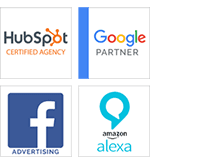
Content Marketing Misconceptions
Content Marketing is one of the most talked about and trusted online marketing tactics.
It can help your business generate online traffic, expand your presence on social media, establish yourself as a thought leader in your industry, and most importantly, bring in new sales and leads.
But despite its current popularity and buzzworthiness, there are still a number of misconceptions about what content marketing is, how it works and what it can do for you. We’re going to clear up some of these misconceptions and help you get a better understanding of how content marketing can help your brand.
Content Marketing Misconceptions
Misconception #1 Content . . . That’s Like Blogs, Right?
Content isn’t limited to blogs and articles posted on your website, content can include videos, audio, pictures, slideshows, or anything else that you can come up with. Don’t feel limited to blog articles because that’s what everyone in your industry is doing. Use your content as an opportunity to showcase your company’s talent, creativity and personality.
Misconception #2 I Can’t, Because I Don’t Have Time To Create New Content
Content Marketing is all about informing your target audience. If you don’t have time to create a new blog article one week, you can find an interesting piece created by someone else. Then, share it on social media with a little bit of your own analysis. This process is called curating content and it takes less than 10 minutes.
Curating content allows you to continue communicating with your audience even when you don’t have time or money to create something on your own, and it shows prospects that you are active in your industry and staying on top of the latest trends and information.
Misconception #3 Creating Content Is Content Marketing
Content Marketing is more than just content creation. Publishing content on your website is a start, but actively promoting it on Facebook, Twitter, LinkedIn, in business groups, and marketing emails will help get your content in front of your audience. The more you promote your content, the more people will share it and link to it. The more people that share it, the more likely it is that a prospect will find it.
Also Read: Different Types Of Content Marketing For Lead Generation
Misconception #4 Content Marketing Won’t Work For My Industry
Content marketing can work in any industry; you just need to focus on the individuals within your industry. What do they care about? What are their fears, uncertainties and doubts? What do they know about the industry, what would they need to know?
Use these questions to develop your content topics. Provide information that your prospects will find interesting and care about.
Once you have your content written, figure out where your prospects go for their information. Do they search online or use social media? Maybe they don’t use the Internet at all, but they read trade publications. Wherever it is, there are always opportunities for publishing good, quality content.
Misconception #5 Content Marketing Is SEO
Content Marketing is not SEO . . . well, it sort of is. You will improve your organic traffic and rankings as a byproduct of content marketing, but you shouldn’t write for the search engines. Your focus in content marketing should always be on creating and sharing compelling, original content that provides benefits to your readers.
The more good content that you create, the more it will be shared on social media and the more links it will generate. SEO shouldn’t be the goal of your content marketing, but if you do it right, it will be a result of it.
Misconception #6 Content Marketing Is Viral Marketing
After the success of companies like Dollar Shave Club, many small businesses thought that making a video or infographic go viral was how you would succeed at content marketing. Getting one big hit on social media would lead to a great deal of new customers.
But content marketing is more of a long-term process. It is rare that a prospect will make a purchase after seeing one great piece of content. A successful content marketing program is about continually publishing good, quality content so that readers will begin to associate your brand as the experts. Then when it comes time for them to need a new product or service, that level of expertise that you have established will lead them to your company.

The landscape of the Internet is ever changing and Nicole has the energy and aptitude to keep Stevens & Tate Marketing out in front of the pack. She leads an enthusiastic team in strategic planning, development, search engine marketing, online promotions and advertising for the web.





